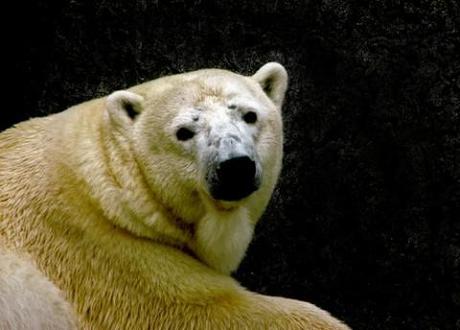
Getting smaller - more bad news for polar bears? Photo credit: Matt McGee http://www.flickr.com/photos/pleeker/2353389093/
A paper published in the Nature Climate Change journal has revealed that a wide range of species are getting smaller as the planet heats up. Species from polar bears to ants and even flowers are shrinking, and researchers expect the trend to continue as global warming gathers pace. The study surveyed 85 plant and animal species, and found that almost half have shown a reduction in average size over the past few decades, reported the International Business Times. What is making species take on these new diminutive forms, and what do these changes mean for ecosystems, the environment, and us humans?
Shrinking away. Increased atmospheric carbon dioxide associated with global warming is generally expected to be beneficial to plants, so we might expect them to be getting larger, if anything. However, The Daily Telegraph suggested that warmer, drier weather and more variable rainfall is leading to the smaller plants. The Daily Mail said, “colder climates contain larger animals because they have adapted to conserve more heat.” This, although an over-simplification, would mean that as the planet’s temperature rises, average animal body size would fall.
Does it matter? The researchers are particularly worried that these changes could lead to imbalances in the delicate equilibrium of natural ecosystems, reported The New York Times Green Blog. Dr David Bickford, one of the paper’s authors, warned, “when some animals are affected and others aren’t, that’s when an imbalance will happen, and that’s what we’re most concerned about.” As one species changes size, all other species that rely on it, such as predators, must adapt their behaviour and/or physiology in response, and any failure to keep up with the changes could lead to rapid extinctions, or a complete re-shuffling of ecosystem processes. The changes could also have repercussions for humans, as falling fish sizes, a problem already being exacerbated by over-fishing, could threaten food security in areas of the world where fish is the primary protein source.
How small? Unfortunately for those hoping for a surge in adorable ‘micro’ animals and fields full of bonsai trees, Jennifer Sheridan, the paper’s co-author, said, “I don’t think that organisms will shrink to the degree that you’ll walk outside and see that trees are suddenly half the size that they used to be.” But while humans may not be at risk of shrinking down to child-size, the changes could be significant. One experiment showed that size reduction of plants and fish could be up to 22%, while fossil evidence shows that during previous periods of global warming, about 55 million years ago, species shrank dramatically. The New York Times reported that “the research community over all has been less than enthusiastic about embracing the idea”, but only time will tell how serious these changes could become.
More science
- Do Yetis exist? New evidence
- Text neck. Scourge of the iPhone generation
- Cold winter on the way – solar activity to blame
- Performing oral sex can give you cancer
- Uh-Oh! New ozone hole appears
- Can things travel faster than light?

